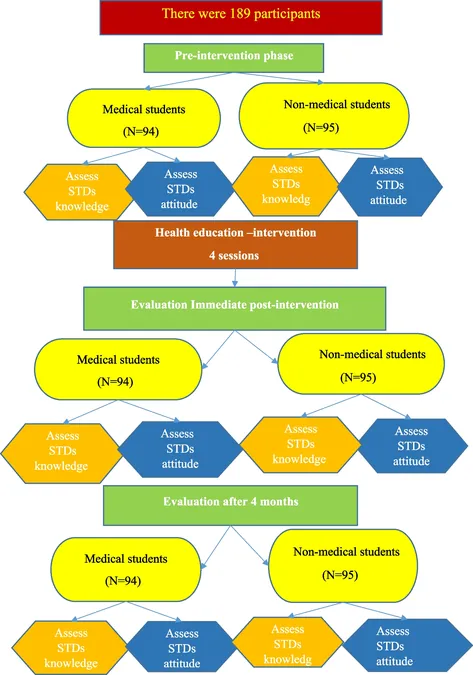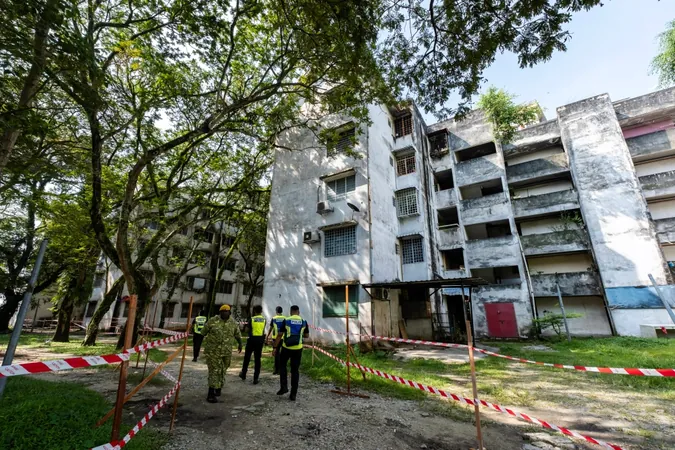
Unlocking Awareness: How Health Education Transformed Youth Attitudes Towards STIs
2025-09-01
Author: Wei
Background: The Silent Epidemic
Sexually transmitted infections (STIs) are a significant global health concern, infecting over a million people daily. Despite their prevalence, many young individuals remain unaware of the dangers they pose.
Study Objective: Bridging Knowledge Gaps
This groundbreaking study aimed to assess how effective health education sessions are in enhancing the understanding and attitudes of university students regarding STIs.
Methodology: Engaging the Future
A total of 189 students participated in a pre-post intervention study at Fayoum University, split between health science and non-health science disciplines. Researchers used self-administered questionnaires to gather insights on students' knowledge, socio-demographic factors, and attitudes towards STIs before and after the educational initiative.
Key Findings: A Remarkable Shift in Awareness
Results showed a significant uptick in knowledge immediately following the sessions (p < 0.001). Although a slight decline in knowledge was noted four months later, levels were still significantly higher than pre-intervention (p = 0.001). Attitudinal shifts were encouraging, with all participants exhibiting enhanced perspectives over the course of the study (p < 0.001). Factors like academic discipline, maternal education, and socio-economic status emerged as predictors of knowledge retention.
Conclusion: Empowering Students for Better Health Practices
The study concluded that tailored health education significantly improved university students' understanding and attitudes toward STI prevention. The implementation of digital tools, such as apps and online courses, could further nurture and enhance this knowledge.
The Critical Role of Education in STI Awareness
Sexually transmitted infections remain a contentious topic, often stigmatized in societies, particularly in developing countries. Education is essential; it allows for open discussions, reduces stigma, and mitigates the public health crisis surrounding STIs.
A Call to Action: Expanding Educational Initiatives
It's crucial to implement health education in all universities. By harnessing modern technology, institutions can broaden their reach, ensuring students are well-informed and empowered to make safe choices.
The Bigger Picture: Addressing Social Barriers
Understanding STIs can significantly impact health outcomes. Awareness campaigns should not only focus on information dissemination but also address the social barriers that inhibit discussions about sexual health, especially among youth.
Looking Ahead: The Need for Continued Research
As STIs continue to pose risks worldwide, ongoing research and intervention studies are vital. These efforts can contribute to building a healthier, more informed generation capable of fostering change in their communities.





 Brasil (PT)
Brasil (PT)
 Canada (EN)
Canada (EN)
 Chile (ES)
Chile (ES)
 Česko (CS)
Česko (CS)
 대한민국 (KO)
대한민국 (KO)
 España (ES)
España (ES)
 France (FR)
France (FR)
 Hong Kong (EN)
Hong Kong (EN)
 Italia (IT)
Italia (IT)
 日本 (JA)
日本 (JA)
 Magyarország (HU)
Magyarország (HU)
 Norge (NO)
Norge (NO)
 Polska (PL)
Polska (PL)
 Schweiz (DE)
Schweiz (DE)
 Singapore (EN)
Singapore (EN)
 Sverige (SV)
Sverige (SV)
 Suomi (FI)
Suomi (FI)
 Türkiye (TR)
Türkiye (TR)
 الإمارات العربية المتحدة (AR)
الإمارات العربية المتحدة (AR)